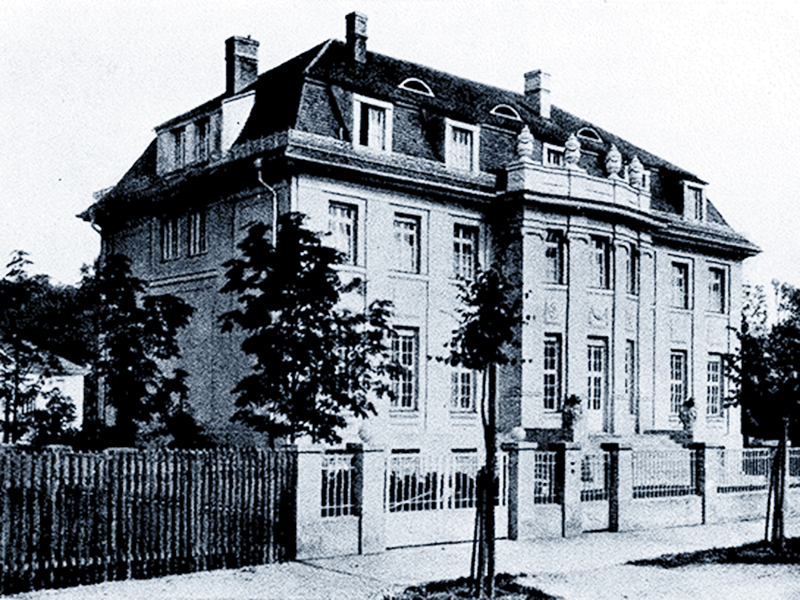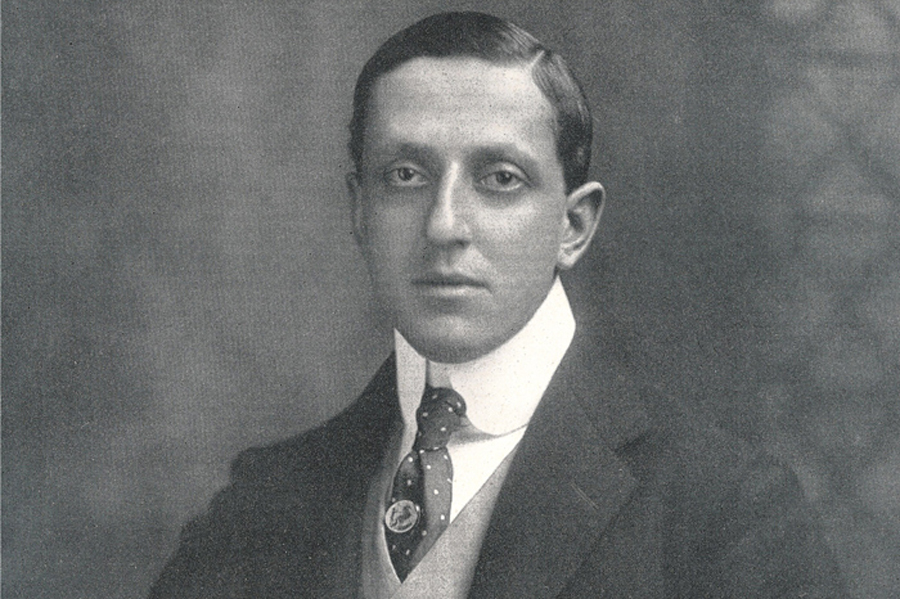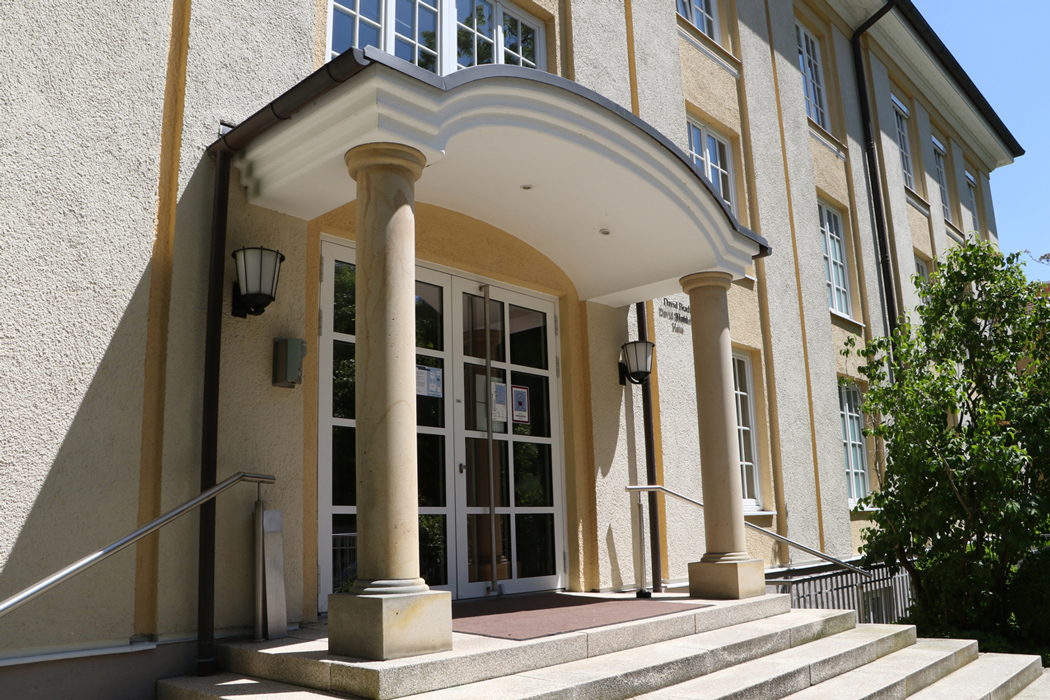Munich, 1909: What does a well-known bon vivant do when he comes into a fabulous inheritance? He buys an exclusive 4,400 square meter plot in Herzogpark for 96,000 German marks and commissions on of the city’s most sought-after architects, Karl Stöhr, to build an opulent neoclassical-style house for him for another 180,000 marks. Fast forward to today, the impressive building at Poschingerstrasse 5, which was completed in 1910, is now home to the ifo Institute. Its first owner, Alfred Walter von Heymel, was indeed a colorful personality.


“Beautiful Women, Beautiful Horses, Beautiful Flowers ...
... English books in supple leather bindings, lots of good food and drink, accompanied by a host of friends, some closer than others – this was how the young men from Bremen, Alfred von Heymel and his cousin Rudolf Alexander Schröder, spent their days and nights,” described writer Rolf von Hoerschelmann, painting a vivid picture of their lifestyle.
“Die Insel” – A Beacon of Literary Modernism in Germany
Heymel’s most important patronage was the literary magazine “Die Insel”, which he founded together with Rudolf Alexander Schröder in 1899. Contributors included literary greats such as Hugo von Hofmannsthal, Rainer Maria Rilke and Robert Walser and the illustrations were by none other than Heinrich Vogeler.
Rolf von Hoerschelmann reminisces, “It featured modern poems, literary gems from all eras and countries, and witty essays, all printed on heavy floral paper and bound in exquisite designs, thanks to its connection with the Insel Verlag book publisher.” This book publisher, also founded by Alfred von Heymel and Rudolf Alexander Schröder in 1901, still exists today, unlike the magazine, which ceased publication just three years after its founding. There were simply too few buyers and the financial burden eventually became too much for even a wealthy patron like Heymel to bear.


The End of a Magazine, The Start of a Dramatic Life
In 1904, von Heymel married Gitta von Kühlmann, a “blonde aristocratic beauty,” as von Hoerschelmann puts it. In 1910, the couple moved into their new villa at Poschingerstrasse 5, but the marriage failed. Seeking a fresh start after his divorce, von Heymel travelled extensively in Africa before settling in Berlin in 1912, where he died two years later after suffering from tuberculosis.
From the 1920s, the consulates of the then Kingdom of Siam and Argentina, among others, resided in the Villa Heymel. The first employees of what is now the ifo Institute moved into the imposing building in 1952. If you take a walk through Bogenhausen district, you can see it up close.
Note: For the sources used in this text, click on the imprint.